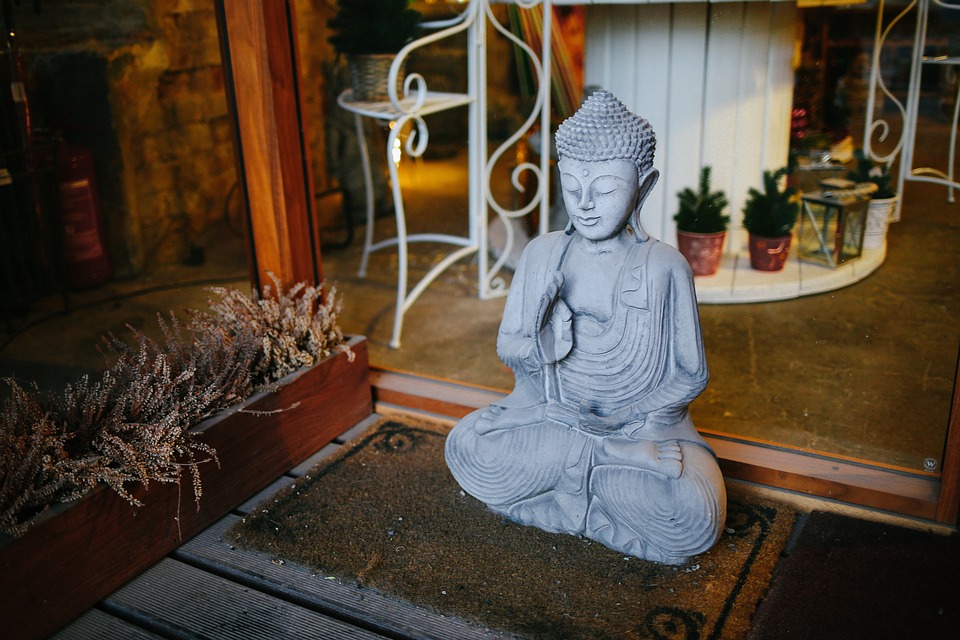The title, ” The experience of Zen moments, ” like anything else associated with Zen, has a twist in its tale.
A Zen moment is never experienced by you, but a Zen moment experiences you.
A Zen moment is experienced not in the moment, but in the none moment of its actual nonexistence.
When you marry existence to nonexistence in this way, you experience a Zen moment for a moment, even as you do this. When you stay within the oneness of the moment, however, there are only Zen moments that exist for you, but they exist without you ever experiencing them in separateness, as you become again the Zen moment of oneness itself. You lose yourself to the Zen moment.
A Zen moment is an intersecting point between separateness and oneness.
When the separated see themselves within oneness, they experience for a brief period of time a Zen moment. This takes place for them just before all moments then disappear for them again forever. Their separation is no more, as they take again their rightful position within oneness.
Here is a koan about what a Zen moment might be.
” The great Zen master Basho stopped for a moment at the edge of the pond.
He looked for a moment at his reflection there before he checked himself once more again, and so he then said to himself that that reflection existed but for the moment that I gave to it.”
 Meaning is meaningless, and meaninglessness has meaning. The moment gives life to each condition, but both states never really do exist within oneness.
Meaning is meaningless, and meaninglessness has meaning. The moment gives life to each condition, but both states never really do exist within oneness.
Nothingness exists as the core of existence, but in a Zen moment, nothing becomes something for a moment, that is until it is thrown once more back into the oneness of infinite nothing. When you are once again with the moment, you discover again your true nature, and that is to have no moments put aside as moments.
How can a moment exist within nothingness? How can silence be broken? If nothing exists, where does the moment come from?
The emptiness empties itself into the moment for the separated to see the fullness of the emptiness. When this happens, the separated for a moment see fullness without separation, and so the moment has disappeared, but now it has already done its work for them.
Where does the Zen moment exist, but within our own minds?
If we carry such moments within our minds they will weigh us down so that we do not ever then experience the real Zen moment. Drop such moments right now, and you will experience at once the real Zen moment, even as you are, even now, dropping it too.
How is our duality related to God’s oneness, in connection to the idea of a Zen moment existing for us as a part of that same oneness?
Oneness is able to develop parts of itself within its imagination, which in essence is all that it is itself. In reality, we are the same as this. We create our own worlds from our imagination until we connect our imagination back into God’s image. When we do this, this becomes a Zen moment for us.
The concrete aspects that we think are real in a dual world are merely the oneness imagining them into existence for us, its parts, and it is true that we also are imagined into existence in a similar way.
This means that in the way God is creating the world for us, he is using a different method than which he creates us from out of his own substance. We are more connected to him from his energy of love. This means that we are more potentially consciously endowed than the inert unconscious building blocks of the Universe.
 Our soul remains a part of God, and so we can connect consciously to the substance imagined by God to exist for us to occupy, in a different way than how the substance is being held within God’s imagination. We exist more freely than this World in which we exist, because God has given to us autonomous creative rights, and we are endowed with an actual part of God’s own imagination to allow us to be able to create freedom for ourselves.
Our soul remains a part of God, and so we can connect consciously to the substance imagined by God to exist for us to occupy, in a different way than how the substance is being held within God’s imagination. We exist more freely than this World in which we exist, because God has given to us autonomous creative rights, and we are endowed with an actual part of God’s own imagination to allow us to be able to create freedom for ourselves.
A Zen moment is simply one of these created parts of God imagining God back into themselves, so that the part that they were, then pops back into God so to speak, and so flashes out of separate existence to be reclaimed again by God.
Imagination is love, and when love’s energy flows in all directions of its infinite imaginative link to God’s person, the latter becomes the energy then also in such a way that God exists then too, for that moment.
God only exists separately for us when we create him within ourselves in a Zen moment.
The rest of the time nothing exists within his oneness unless we think to ourselves that it is existing for us, by us maintaining its existence by creating it from our own imagination. Anything that is existing, we have created for ourselves, otherwise, we would forever always remain only within God’s oneness.
God is nothing until he imagines himself to be something, and it takes the spontaneous eruptive force of love to build for him images like this in his imagination, which can then become Zen moments for us.
This happens for us when we connect to our own image again, that is exactly the same one that God has imagined exactly, or perfectly to be us, rather than to our own imagined version of ourselves within him.
Our own version remains largely only ever incomplete until we do this. It is not that it is false or wrong, or even imperfect, it is just that we are not seeing the full picture that is being imagined for us by God.
A Zen moment is when we find ourselves within God, by losing ourselves within him. We drop our own imagination of what he is, and become what he is imagining us to be within himself once more again.
We only exist because God has imagined us into existence. We are a dream of God’s, and a Zen moment for us is like a lucid dream for God. The dreamer connects to the dream in a Zen moment that is being experienced by the dreamer.





